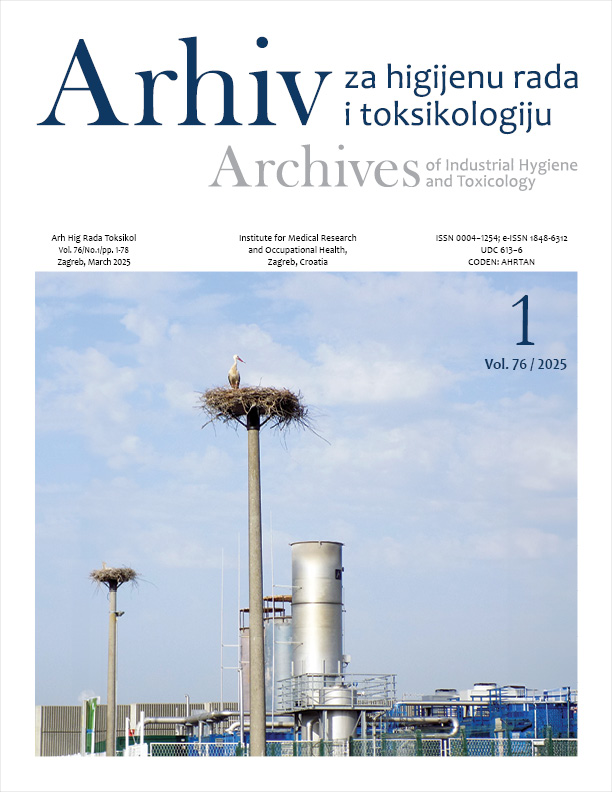Demographic and clinical profile of young adult emergency ward patients in Serbia who attempted suicide by poisoning during the Covid-19 pandemic: a retrospective cohort study
DOI:
https://doi.org/10.2478/aiht-2025-76-3933Keywords:
benzodiazepines, deliberate self-poisoning, depression, mental disorders, psychopharmacotherapy, SARS CoV 2, self-harmAbstract
Suicide is the fourth leading cause of death in young adults worldwide. Given the vulnerability of this population, the aim of our retrospective cohort study was to examine the demographic and clinical profile of 193 young adult emergency ward patients at the Clinic for Emergency and Clinical Toxicology of the National Poison Control Centre (NPCC), Military Medical Academy (MMA) in Belgrade, Serbia who attempted suicide by poisoning in 2020–2023. More than half suffered from a mental disorder, and poisoning mainly involved marketed prescription drugs (most often benzodiazepines). Women attempted suicide by poisoning more often and had a history of previous attempts, while men had more ensuing complications and were older. Current mental disorders and current psychopharmacotherapy positively correlated with the number of suicide attempts by poisoning and with the history of previous poisoning with prescription drugs. The number of suicide attempts by poisoning also correlated positively with self-harm. Our results suggest that the experience of the pandemic has highlighted the need to strengthen mental healthcare. Developing the resilience of young people, establishing help centres, and improving public awareness of this important issue could help reduce the incidence of suicide attempts in young adult population.
Downloads
Published
Issue
Section
License
Copyright (c) 2025 Maja Petrović, Ana Simić, Katarina Simić, Gordana Vuković Ercegović , Nataša Perković Vukčević , Slavica Vučinić, Zvezdana Stojanović

This work is licensed under a Creative Commons Attribution 4.0 International License.














